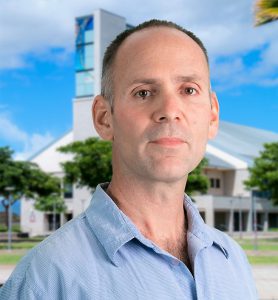
UHWO Sustainable Community Food Systems students in the field
UH West Oʻahu’s Dr. Albie Miles was awarded a $406,874 USDA grant to measure the rate of food insecurity in the student population across the UH System and expand the outreach and education capacity of UHWO’s Sustainable Community Food Systems program.
A significant portion of the grant from the USDA National Institute of Food and Agriculture/Alaska Native-Serving and Native Hawaiian-Serving Institutions Education Competitive Grants Program will support applied research designed to measure the rate of food insecurity in the UH system student body. The research project was noted by UH President, David Lassner in his Sept. 20th presentation to the UH Board of Regents.

UH President David Lassner
“This one is really interesting because it will help support a system-wide survey our our students on their food security,” said Lassner. “When we talk about food security for students, we’re not talking about whether or not we have food for a month in the islands in the case of a hurricane, but rather our hungry students.”
Lassner said the work will help the UH System get a better grasp on the scope of the problem and then look at solutions, whether they be food pantries, working with community organizations, or integrating other kinds of aid that may be available to students.
“Some of our campuses are doing some wonderful things but we don’t yet have a handle on this across the system, so we’re very grateful for this federal support to help us get started,” Lassner remarked.
The grant will allow Dr. Miles, Assistant Professor of Sustainable Community Food Systems (SCFS), to hire additional program staff, develop curriculum, teach new courses, and provide outreach to Native Hawaiian and other students interested in traditional ecological knowledge and the influence of the food system on diet, public health, economics, sustainability and resilience.

Dr. Albie Miles
The two-year grant, Hoʻohiapo-Renewing Ancestral Education Pathways in Agroecology, seeks to create a well-supported and culturally relevant learning pathway for Native Hawaiian and other underrepresented students in the SCFS program. It proposes to do this through:
- Curriculum development in indigenous natural resource management and epidemiology, public health and nutrition;
- Enhanced experiential learning through internships, summer research projects, academic travel and leadership training;
- Increased community outreach and recruitment for the SCFS program;
- Improved student support through scholarships and stipends; and,
- Strengthening of connections to local high schools through support of teacher professional development in agroecology and sustainable food systems.
The grant also will allow for the hiring of additional junior specialist staff. The SCFS program is the only one of its kind in the state and prepares students for jobs in sustainable food and agriculture as well as natural resource management, education, planning, food policy, and post-graduate degrees.
Miles’ proposal letter to the USDA noted that SCFS is an indigenous-serving program emphasizing the integration of traditional Hawaiian knowledge and natural resource management practices with the science of agroecology. In doing so, it aims to create more sustainable food and farming systems for Hawaiʻi, the Pacific Islands and beyond, the letter said.
